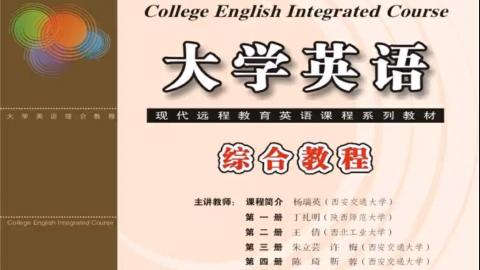I readlly
duan luo
基本特征
主题句 发展句
Do you like to collect something in your life?
Have you ever thought of enriching your knowledge through collecting?
Para.1
1.People tend to amass possessions,sometimes
without being aware of doing so.人们往往收集物品,有时连自己都未意识到。
amass vt. 积聚,收集
e.g. He is planning to amass a fortune for a rainy day.
他正打算积蓄财富以备不时之需。
a rainy day 雨天;不如意的日子
1.be aware of 觉察到,意识到,知道
e.g. Are you aware of the danger?
你意识到危险了吗?
l was always aware of my shortcomings.
我一直意识到自己有缺点。
(merit 指的是一个人的优点)
possession n.财产;所有,拥有
e.g..He was found in possession of dangerous drugs.
她被发现藏有危险物品。
possess vt. yo拥有,持有
e.g. Different workers possess different skills.
不同的工作者有不同的技能。
2.lndeed they can have a delightful surprise when they find something useful which they did not know they owned.
当人们发现某件有用的东西属于自己,而自己之前却不知道时,的确会感到又惊又喜。
A:Do you have any hobbies。
本课程立足于在培养学生的英语综合应用能力的同时,为学生参加统考提供必要的考前。培训练
注意连续语流中的句子重音、元音弱化、连续、语调等。
Do you like to collect something in your life?
Have you ever thought of enriching your knowledge through collecting?
Para.1
1.People tend to amass possessions,sometimes
without being aware of doing so.人们往往收集物品,有时连自己都未意识到。
amass vt. 积聚,收集
e.g. He is planning to amass a fortune for a rainy day.
他正打算积蓄财富以备不时之需。
a rainy day 雨天;不如意的日子
1.be aware of 觉察到,意识到,知道
e.g. Are you aware of the danger?
你意识到危险了吗?
l was always aware of my shortcomings.
我一直意识到自己有缺点。
(merit 指的是一个人的优点)
possession n.财产;所有,拥有
e.g..He was found in possession of dangerous drugs.
她被发现藏有危险物品。
possess vt. yo拥有,持有
e.g. Different workers possess different skills.
不同的工作者有不同的技能。
2.lndeed they can have a delightful surprise when they find something useful which they did not know they owned.
当人们发现某件有用的东西属于自己,而自己之前却不知道时,的确会感到又惊又喜。
“which"引导的是一个定语从句,先行词是“something useful”。
e.g. l want to take away the book which you showed me yesterday.
我想带走你昨天给我看的那本书。
2.delightful adj.令人愉快的
e.g. Life in the cuntry is rather delightful.
乡村生活确实让人愉快。
delight n.愉快,高兴
take delight in..以.....为乐
e.g. He takes delight in reading.
他以读书为乐。
2.surprise. n.惊奇,惊喜
e.g.What a surprise!真是出人意外!
surprise vt. 使惊起,使惊喜
e.g. The news greatly surprised them.
这消息使他们大为吃惊。
A collecting serious Hobby
Have you ever thought of enriching your knowledge through collecting?
People tend to amass possessions, sometines without being aware of doing so.
amass
shortcomeing
Knowledge is a treasure, but practice is the key to it.
Do you have any hobbies?
I am interested in watching TV or other relaxing games. How do you spend you spare time?
I have a strong interest in reading.
What kind of book are you fond of?
My favorite books are those about detectives.(侦tan
well, those books are really good. I like them too .
同义词:autumn-fall, almost-nearly,answer-reply,
反义词:quick-slow, man-woman, dead-alive
上义词:
Living things(有生命的)
creature (生物) Plant(植物)
animal insect tree flower vegetable
horse dog snake
they loaned ia all to europe
I mean the capital of the united states
昨夜西风凋碧树,独上高楼,望尽天涯路。
东风破早梅,向暖一支开。冰雪无人见,春从天上来。
That's a good idea.
carve a path into 看创一条......的道路
upside down 颠倒,混乱
hit the books刻苦学习
l've always liked... 我一直喜欢...
l really gou for... 我很喜欢...
l'm crazy about... 我迷上...
将来完成时
表示将来某一时间以前已经完成或一直持续的动作,经常与before+将来时间或by+将来时间连用,也可以与before或by the time 引导的现在时的从句连用。和将来一般时一样,第一人称时will通常也被shall所替代
构成
shall/will+have+现在分词
(shall用于第一人称,will用于第二和第三人称)
(will/shall+have+过去分词用于第一人称,will+have+过去分词用于其他人称)
主要用法
will是情态助动词,有大概,料想等含义,并无将要的意思
表示某种状态一直持续到说话人所提及的时间
特殊情况
表示时间或条件的状语从句中,不能用shall和will表示将来,要用现在完成时代替将来时。
有些动词本身已经有完成的意思,可用简单将来时代替将来完成时。
college 连贯性Smoking吸烟



